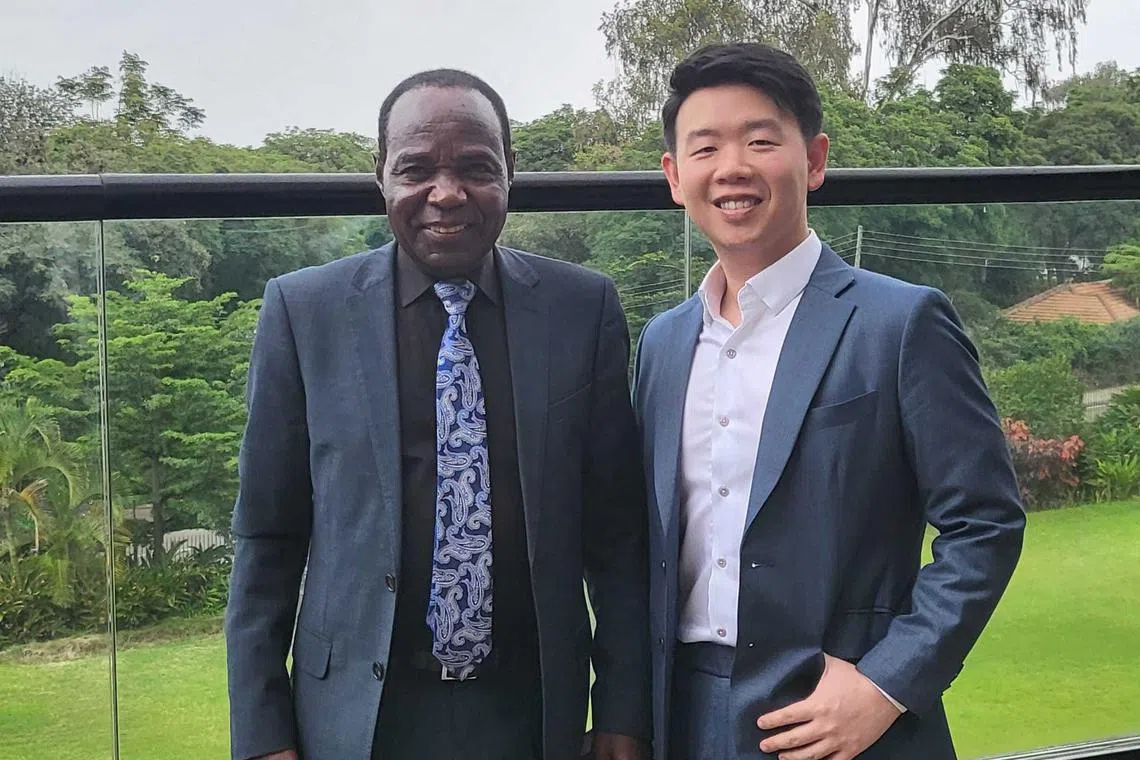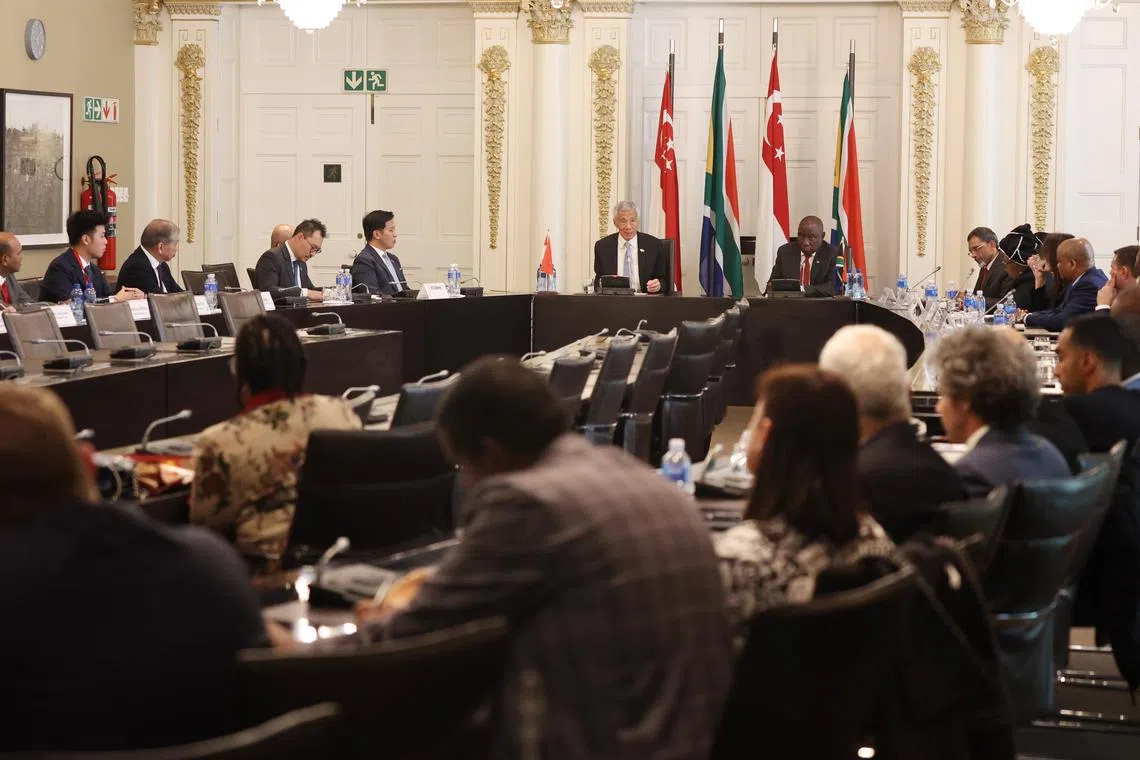Singapore firms find opportunities, build confidence to do business in Africa
Sign up now: Get ST's newsletters delivered to your inbox

Mr Benjamin Chua, CEO of cleaning technology firm Speco, with Dr Iruki Kailemia, managing director of Kenyan firm Ace Pharmaceuticals.
PHOTO: COURTESY OF BENJAMIN CHUA
Follow topic:
NAIROBI – When entrepreneur Benjamin Chua, 35, caught wind of a business delegation that was headed to South Africa and Kenya in May, he signed up immediately as he was looking to find out more about Kenya’s market.
The founder of cleaning technology company Speco makes a machine that automatically sanitises rooms and repels mosquitoes, and its partner was setting up education centres in Kenyan cities and wanted Mr Chua’s machines in the classrooms.
Just midway into the week-long trip, which ends on Saturday, Mr Chua said he was seriously considering another proposal pitched to him by a South African counterpart he met during a networking session in Cape Town.
The South African firm, which makes plastic piping for water projects, said it wanted to apply Speco’s coating technology to its pipes for use in wastewater treatment plants.
“Who knew that when we started meeting more South African companies, more ideas will pop up, more opportunities will arise?” he asked. “And of course, we will jump on these opportunities.”
The business delegation was organised by the Singapore Business Federation (SBF) to coincide with Prime Minister Lee Hsien Loong’s official visit to South Africa and Kenya, which ended on Thursday.
Called an overseas market workshop, such a delegation is organised regularly to different countries. It is aimed at helping Singapore firms understand the intricacies of doing business in these markets, while also providing a platform for them to meet potential trade and investment partners.
Of the 21 companies in the delegation, 17 are small and medium-sized enterprises, of which a sizeable number are stepping foot in Africa for the first time, said deputy delegation leader V. Srivathsan.
Apart from getting the lowdown from other countries’ investment promotion agencies on issues such as local laws and taxation, participants get to hear directly from policymakers and seek clarifications on questions they have, which help build their trust and dispel fears about venturing abroad, said Mr Srivathsan, who is also managing director of Olam Global Agri.
Another participant who has identified a clear business opportunity through discussions with potential partners is Mr Kanan Packrisamy, the chief executive of health supplements company Herbal Pharm.
During a business roundtable at the office of South Africa’s president on Tuesday, Mr Kanan met the chairman of a South African pharmaceutical giant who indicated strong interest in producing Herbal Pharm’s supplements as he had spare production capacity.
A further upside would be that the supplements could then be sold across the African market without import tariffs.
“The fact is we cannot put our product on the shelves due to price (after taxes), so I have to produce it in Africa, for Africa, and then it can make commercial sense,” Mr Kanan said. “That’s the only way – and they have a need, and I have a need as well.”

An official business roundtable at Tuynhuys, the office of South Africa’s president, in Cape Town on May 16, 2023.
PHOTO: LIANHE ZAOBAO
Mr Srivathsan said feedback from the participants so far is that the size of the market is huge and that “coming here is not too difficult”.
South Africa has a population of almost 60 million people, while Kenya’s is 53 million.
Even so, it would be foolhardy for a businessman entering Africa for the first time to go it alone, given the completely different culture between the continent and that of countries in South-east Asia, said Mr Srivathsan, who has lived in Africa for 17 years.
It is also unnecessary, given that Enterprise Singapore (EnterpriseSG) has three overseas centres in Africa to help Singapore firms connect with credible local partners keen on tie-ups, he added.
Both Mr Chua and Mr Kanan agreed on the need for local knowledge and to tap the expertise of more experienced Singapore firms, and they shared anecdotes about having learnt hard lessons trying to expand overseas on their own.
For instance, Mr Chua recounted that Speco’s expansion into Australia had been a very lonely and morale-sapping journey until he turned to the trade associations and chambers and SBF, and received help navigating the local system.
Agreeing, Mr Kanan said his South Africa takeaway is that a business partner, whether from Singapore or the target market, is crucial when venturing abroad, and that the involvement of SBF and government agencies can provide firms with a level of assurance while opening doors to new partnerships.
“I am very confident that without SBF or EnterpriseSG to make the introductions, much as I would like, I cannot go up to someone, shake his hand and say ‘I will do business with you’,” he said.


